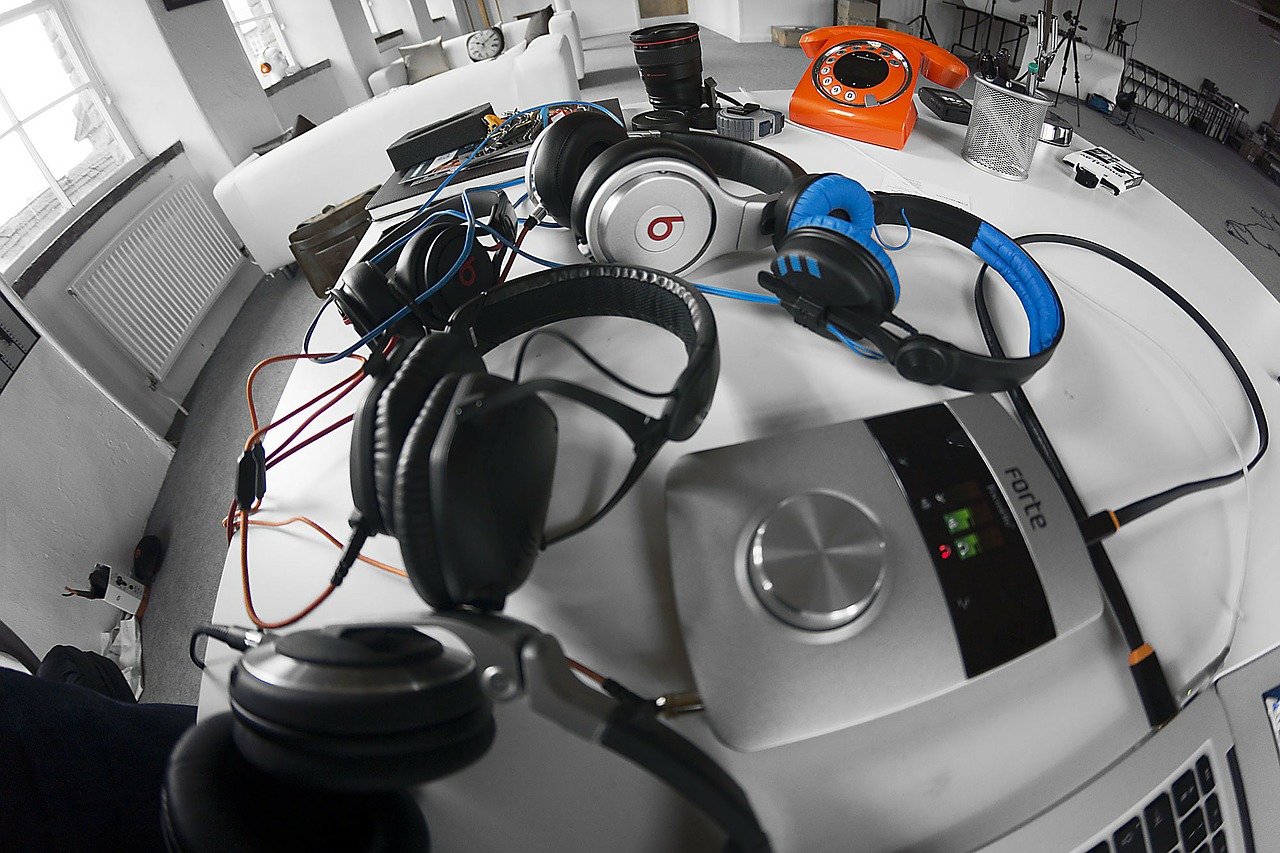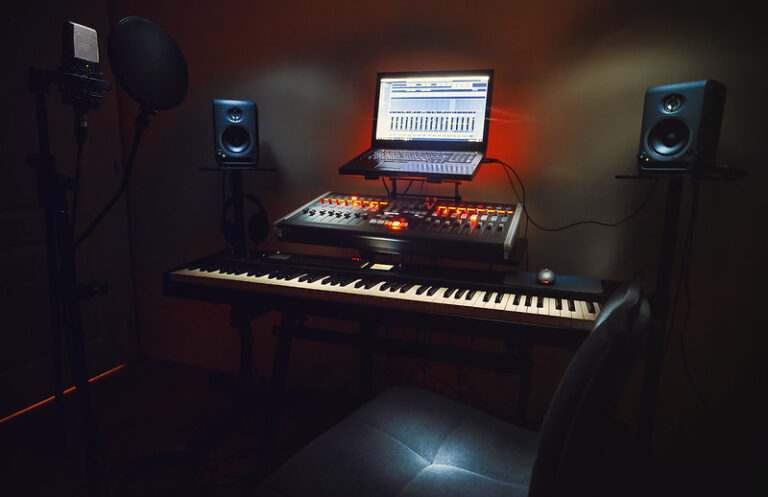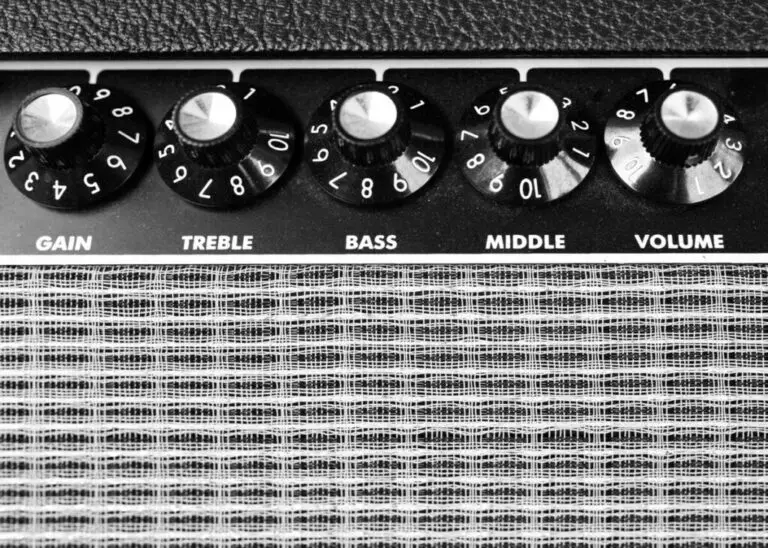What’s More Important: Mixing or Mastering?
After you record music, you will go through the processes of mixing and mastering. Mixing involves combining the individual tracks into a stereo and multichannel format. Mastering consists of processing the mix into its final form, so it’s ready for distribution.
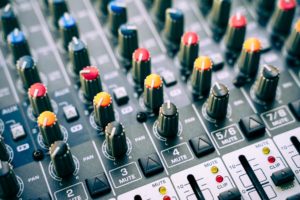
Those who are thinking of recording may wonder, what’s more important: mixing or mastering? While there are arguments for both sides, the consensus is that mixing is more important. A track with a good mix may not need much mastering at all. On the other hand, if a channel is poorly mixed, it will be impossible to get a good master.
This article will take a look at what is involved in the mixing and mastering process to make your own decision.
What is Mixing?
After you finish laying down your tracks, you will be ready for the mixing process. The mix works to make the sound of the songs more cohesive and even out each instrument’s level.
An engineer performs mixing. Each engineer may have a different mixing process, but here are some recommended steps.
- Start by organizing tracks and giving each an informative name—for instance, Ld. Vocal will be a lot more informative than audio_track_4.
- Put gain plugins on each track to help them achieve an equal volume. Use DAW faders to get approximate levels. Then pan each channel to create balance. Once done, you will have a rough mix.
- Use high pass filters, low pass filters, and EQ to make space for each element and add tone and balance.
- Use compressors to manipulate and contain the dynamic range of each track.
- Add reverb, delay, modulation, saturation, and other creative effects if desired. These include modulation, dynamic, and time-based effects.
- Play the recording back through several devices, including headphones, a stereo system, and other audio systems. Once you are satisfied with the mix, you can move on to mastering.
Note, although the engineer is responsible for mastering the technical aspects, the artist, producer, and even record label reps may weigh in to get the right sound.
Here are some tips for getting a great mix.
What is Mastering?
Once mixing is complete, it’s time for mastering. Mastering serves the purpose of getting your music ready for distribution. It gets it to a point where it is suitable for presenting on CD, vinyl, and the internet.
Mastering involves using tools like linear phase EQs, compressors, brickwall limiters, and vibe enhancing effects to give your mix a professional sound. Metering also plays an essential role.
Note that mastering is a subtle process. It shouldn’t transform the sound of the mix. If the combination does not sound right, mastering will not fix it. It may be time to go back to the old drawing board.
You will have to put your songs in the desired order and even out the song volumes with one another during mixing. Adding spacing and fades is also part of the process. Typically, there is a two-second interval between songs.
Finally, label songs and add UPC/EAN codes, CD-Text, and ISRCs. Below are some quick definitions:
- CD-Text: Allows the information display on their stereo’s screen properly.
- ISRC: An unique 12-digit identifier for identifying specific tracks. (examples include UPC or EAN codes)
It’s advisable to take some time between mixing and mastering. This time will help you to gain perspective so you can achieve a better mix.
Even though it may not be as essential to get feedback on the master, it doesn’t hurt to have a second set of ears to give it a listen before pronouncing it done.
Here are some tips for getting a great master.
Differences Between Mixing and Mastering
Here are some essential differences between mixing and mastering.
- Mixing creates a balance between the individual sections and transforms them into one cohesive project. Mastering gives it a final polish, so Mixing is before mastering.
- When you mix, you have access to every track. You can boost volume and manipulate the sound of the instruments as needed. Once you master, you only have access to the final mix. Therefore, it is more challenging to work with individual elements.
- Mixing and mastering both involve finding a balance. With mixing, you are getting a balance for the individual elements. With mastering, you will be balancing the songs and spectral content to provide even volumes and tones.
- Mixing sessions can be massive projects depending on how many tracks you are mixing. Once you master it, everything compiles into one stereo or multitrack file per song. This multitracking simplifies the process.
- While mixing, you make a lot of significant adjustments to your songs. Mastering involves making minor tweaks to enhance the sound.
- Mixing is a creative process that helps the artist achieve their vision. Mastering focuses on boosting sound quality so that it is pleasing to the listener.
Steps to Getting the Perfect Mix Before Mastering
We’ve established that getting a good master is contingent on getting a great mix. Here are some steps that will help you get the perfect blend before moving on to mastering.
- High Pass Your Tracks: High passing will get rid of the rumbling low end. Most EQ plug-ins will give you the ability to high pass.
- Gate Your Drums: Gating your drums will reduce overall noise and isolate tracks of, say, your snare and your kick. You can do this by setting your gate’s threshold based on the snare sentient as you go.
- Panning: Panning helps instruments have a specific spot in the mix. Engineers may position instruments left, right, or center to get the right stereo balance. The position is most noticeable with headphones.
- EQ: EQ emphasizes high mids bringing tracks to the forefront that generally would be too quiet to hear.
- Effects: Sound engineers use effects like reverb and delay to enhance the sound of the track. For best results, mix the dry signal (pure noise). This effort will allow more control when mixing.
- Compression: Compression involves lowering loud parts and increasing the volume of soft parts to bring an overall balance.
- Automation: Automation makes it easy to fine-tune tracks. You can use almost any DAW to bring changes into the mix that can mute, pan, adjust volume, and more.
- Check Your Phase: When sound waves are not in time with each other, sound becomes out of phase. When completely out of phase, the waves cancel each other out, creating silence. The phase is usually controlled with mic placement, but this isn’t possible during the mix. However, checking the phase relationship while you’re mixing will ensure you have a balanced and full sound.
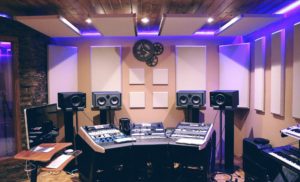
Mixing and mastering both play an essential role in the recording process, but ultimately, mixing is critical. A great mix will lead to a great master, but a great master will not be possible without a good mix. Here’s hoping you get a terrific recording through and through.
Is mastering necessary?
There is some back and forth concerning whether mastering is necessary.
In theory, if the mix is terrific and all volumes are at a perfect level across the board, and all the fades are just right, mastering would not be necessary, but that rarely ever happens.
What level should I mix at before mastering?
When you pass on your mix to an engineer for mastering, it should be at the right volume, not too low and not too loud. Experts say the perfect level is -23 dB LUFS, or peaks should be between -18dB and -3dB.
Is Ableton a viable program for mixing and mastering?
Ableton is a digital audio workstation. It can work as an instrument in live performances, and you can also use it to compose, record, arrange, mix, and master. (Learn more about Ableton here.)
Despite having mixing and mastering capabilities, Ableton is rarely for this purpose because while the tool can mix and master, it isn’t Ableton’s top priority. As such, engineers often encounter problems using it for this purpose, mostly involving time/buffer plugins and more extended buffer sizes.
Experts say it is advisable to write the Live program’s track and then bounce it to Pro Tools for mixing and mastering. Pro Tools is the way to go when looking for a concrete mix and master without unnecessary fluff.
What’s the most significant factor determining the sound of your music?
It used to be that your essential tracks’ quality and performance were the most significant factors determining your music’s sound.
Today, the many advances in technology mean that engineers can work wonders in the mix. They can change pitch, play with timing and sound, and essentially transform your music.
Mastering makes sure everything is level and that the tracks flow together well as one solid piece.
Because you can do so much to transform the sound in the mixing process, this is the most significant factor determining your music’s sound.
Keep it on Bythebarricade.com for tons of punk rock interviews, reviews, articles, and photos! Also, “Like” By the Barricade on Facebook to never miss a post.

